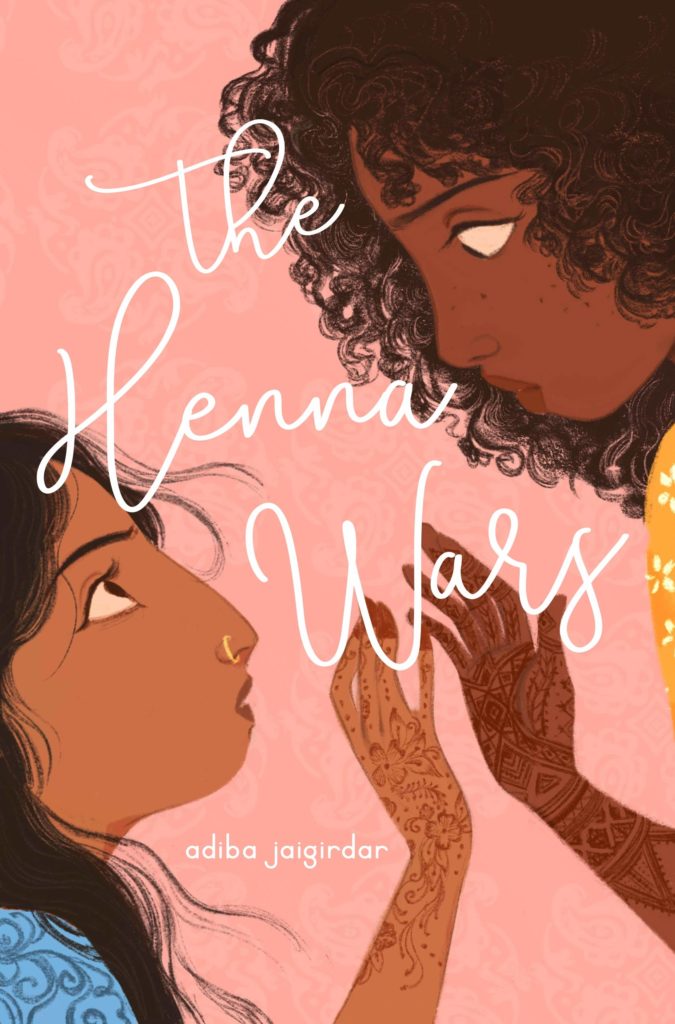The Henna Wars has been on my radar for what feels like years. I’ve been looking forward to this rival-is-actually-my-childhood-crush forever! It has all my favorite elements! Having read it, I can safely say how much I loved The Henna Wars. Keep reading this book review to find out how The Henna Wars matched my expectations.
Summary
When Nishat comes out to her parents, they say she can be anyone she wants—as long as she isn’t herself. Because Muslim girls aren’t lesbians. Nishat doesn’t want to hide who she is, but she also doesn’t want to lose her relationship with her family. And her life only gets harder once a childhood friend walks back into her life.
Flávia is beautiful and charismatic and Nishat falls for her instantly. But when a school competition invites students to create their own businesses, both Flávia and Nishat choose to do henna, even though Flávia is appropriating Nishat’s culture. Amidst sabotage and school stress, their lives get more tangled—but Nishat can’t quite get rid of her crush on Flávia, and realizes there might be more to her than she realized.
Review
(Disclaimer: I received this book from the publisher. This has not impacted my review which is unbiased and honest.)

TW: homophobia
I adored The Henna Wars. Everything from the Nishat and her sister’s relationship to the tropes of a childhood crush who returns plus a competition. It was so easy to fall into the pages of The Henna Wars. This queer contemporary tackles issues of homophobia both within our own family and from our peers as well as racism and the ways it emerges in big and small ways.
Jaigirdar writes a story about complex characters who make mistakes, have trouble standing up for themselves, and have to figure out both how they can be who they want to be and fix their mistakes. Featuring a Bengali and Brazilian teen, The Henna Wars is a queer contemporary (f/f romance with bisexual LI) that manages to discuss important themes, and deliver cute romance.
The Henna Wars is a thoughtful book as Nishat manages her parent’s feelings of shame as well as the cultural appropriation of henna. There are so many different layers to The Henna Wars. Family pressure, new and old rivals, and childhood crushes. Where The Henna Wars truly shines is the characters. Multifaceted, we can see the different pressures they are under. The ways they make mistakes, but are also hurt in turn.
Overall,
The Henna Wars discusses cultural appropriation in a careful nuanced way. It felt timely, reminding me of other conversations I’ve heard. Asking us about the commodification of culture. What counts as art? And how can we voice these concerns? I loved Adiba Jaigirdar’s debut and can whole heartedly recommend it to anyone who loves tropes like enemies to lovers, a YA contemporary tackling cultural appropriation, and complex characters.
Find The Henna Wars on Goodreads, Amazon, Indiebound, Bookshop.Org & The Book Depository.